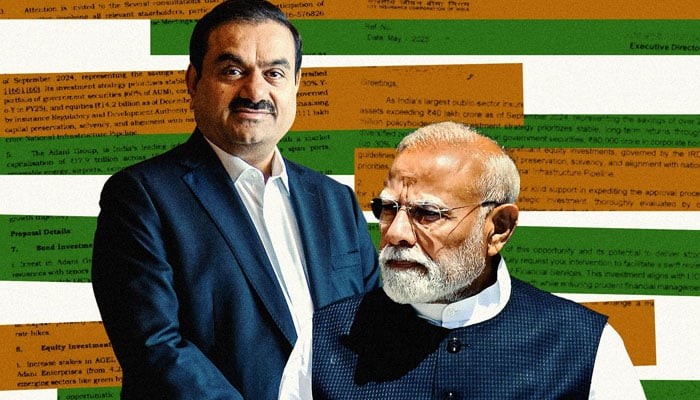
News Desk
NEW DEHLI: India’s political and corporate circles were jolted by fresh revelations that Prime Minister Narendra Modi’s government allegedly orchestrated a multibillion-dollar state-backed bailout for the troubled Adani Group, according to an investigation by The Washington Post. The report claimed that the administration quietly facilitated a massive $3.9 billion transfer from the state-owned Life Insurance Corporation (LIC) into Adani-linked firms, effectively extending a lifeline to the conglomerate as it struggled under mounting debt and waning investor confidence.
LIC, one of India’s most trusted financial institutions with millions of policyholders across the country, was said to have channeled the funds at the government’s direction—an intervention described as both extraordinary and politically sensitive. Citing unnamed officials, the report suggested that the transaction was not part of ordinary investment activity but rather a coordinated move personally overseen by senior government figures to stabilize the industrial empire of billionaire Gautam Adani, one of Modi’s closest corporate allies.
The allegations surfaced against the backdrop of a tumultuous year for the Adani Group, which had been reeling since explosive fraud and bribery accusations by US authorities last year. The fallout from those claims saw Adani’s market value plummet and major Western financial institutions distance themselves from his companies, triggering what analysts described as a crisis of credibility for India’s corporate governance.
If accurate, the newly revealed support indicates the Modi government’s deep economic stake in preserving the Adani empire—an entity closely tied to national infrastructure projects and energy development. The episode also raises questions about the blurred line between state institutions and politically favoured conglomerates, with critics warning that the use of public funds to rescue private empires could erode transparency and public trust in India’s financial system.


